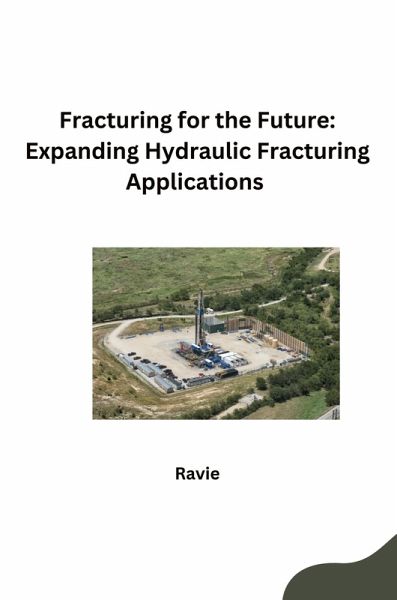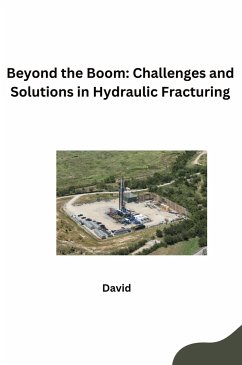
Fracturing for the Future: Expanding Hydraulic Fracturing Applications
Versandkostenfrei!
Versandfertig in 1-2 Wochen
19,90 €
inkl. MwSt.

PAYBACK Punkte
0 °P sammeln!
This title uses "fracturing" as a clear reference to hydraulic fracturing, but positions it as a technology with a future, not just a current practice. "Expanding Applications" emphasizes the potential for hydraulic fracturing to be used beyond its traditional role.Here's a breakdown of the title:-"Fracturing for the Future": This suggests that hydraulic fracturing can play a role in meeting future energy demands.-"Expanding Hydraulic Fracturing Applications": This clarifies the focus on exploring uses beyond shale oil and gas extraction.We can delve deeper by exploring some of these potential...
This title uses "fracturing" as a clear reference to hydraulic fracturing, but positions it as a technology with a future, not just a current practice. "Expanding Applications" emphasizes the potential for hydraulic fracturing to be used beyond its traditional role.Here's a breakdown of the title:-"Fracturing for the Future": This suggests that hydraulic fracturing can play a role in meeting future energy demands.-"Expanding Hydraulic Fracturing Applications": This clarifies the focus on exploring uses beyond shale oil and gas extraction.We can delve deeper by exploring some of these potential new applications:-Enhanced Geothermal Systems: Hydraulic fracturing could be used to create or enhance fractures in hot rock formations, facilitating heat extraction for geothermal energy production.-Carbon Capture and Storage: Fracturing could help create underground reservoirs for storing captured carbon dioxide, mitigating its impact on climate change.-Water Well Stimulation: In some cases, hydraulic fracturing techniques could be adapted to increase the flow rate of existing water wells in areas with limited water resources.The title "Fracturing for the Future" effectively positions hydraulic fracturing as a technology with the potential to evolve and contribute to a more sustainable future. It sparks curiosity about its potential applications beyond its current use in oil and gas extraction.














